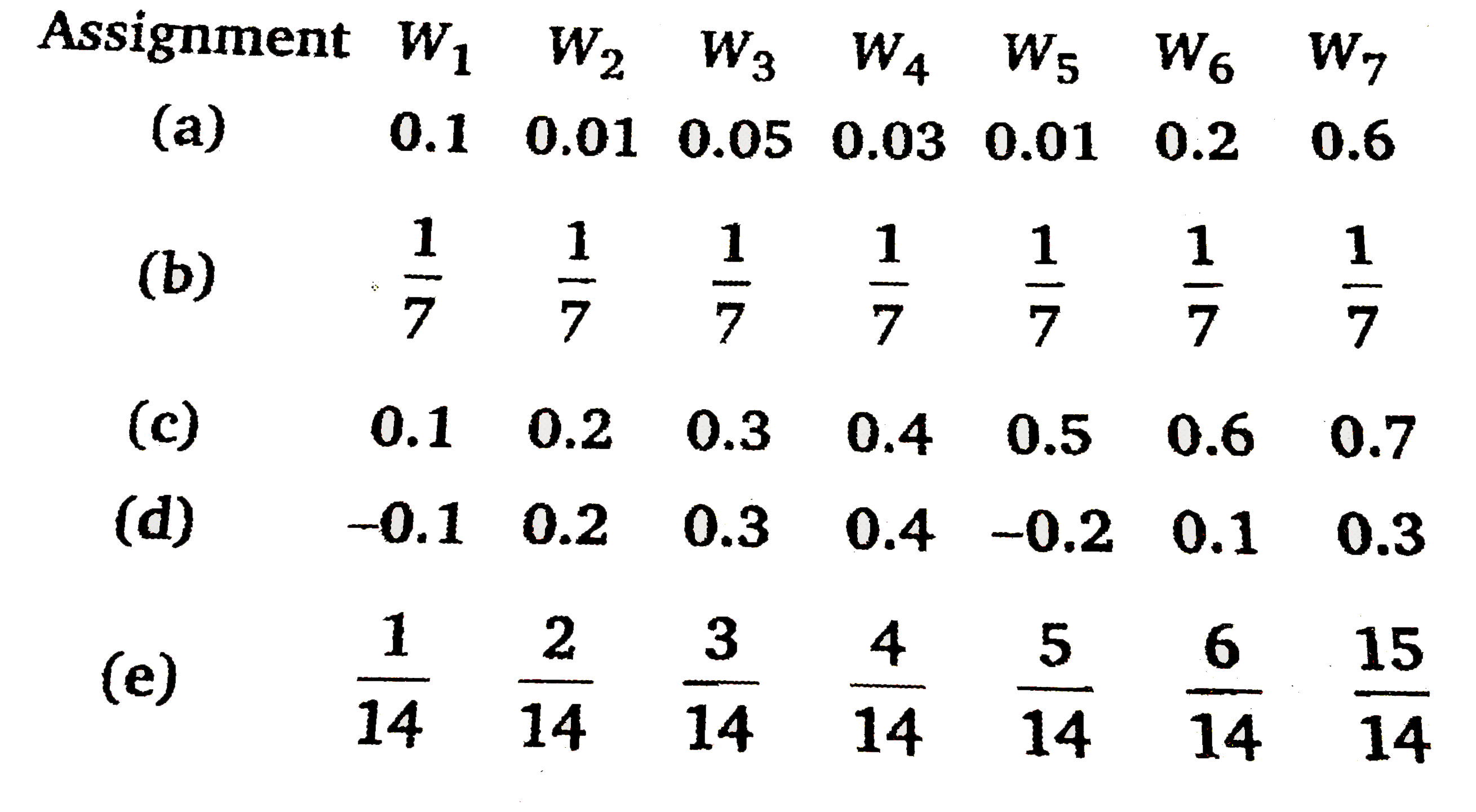A fair dice is thrown three times. If p, q and r are the numbers obtained on the dice, then find the probability that ip+iq+ir=1, where I=√−1. Solution in Tamil
The possbile values of p, q and r are (1, 3, 4), (3, 4, 5), (4, 4, 6) and (2, 4, 4) not in order.
∴ Number of favourable cases = 3!+3!+3+3=18
Total number of cases = 6×6×6
∴ Required probability = 18216=112
Topper's Solved these Questions
- PROBABILITY I BOOK - CENGAGECHAPTER - PROBABILITY I EXERCISE - Solved Example
1 Videos
- PROBABILITY I BOOK - CENGAGECHAPTER - PROBABILITY I EXERCISE - Exercise 9.1
6 Videos
- PROBABILITY AND STATISTICSBOOK - CENGAGECHAPTER - PROBABILITY AND STATISTICSEXERCISE - Question Bank
24 Videos
- PROBABILITY IIBOOK - CENGAGECHAPTER - PROBABILITY IIEXERCISE - JEE Advanced Previous Year
25 Videos
Similar Questions
There are two bags each containing 10 books all having different titles but of the same size. A student draws out books from the first bag as well as from the second bag. Find the probability that the different between the books drawn from the two bags does not exceed 2.
View SolutionWhich of the following cannot be valid assignment of probabilities for outcomes of sample space S={W1,W2,W3,W4,W5,W6,W7}

View SolutionIf two events A and B are such that P(Al)=0.3, P(B)=0.4 and P(A∩Bl)=0.5, then P(BA∪Bl) equals
View SolutionA signal which can be green or red with probability 45and15 respectively, is received by station A and then and 3 transmitted to station B. The probability of each station receiving the signal correctly is 34 If the signal received at station B is green, then the probability that the original signal was green is (a) 35 (b) 67 (c) 2023 (d) 920
View SolutionIf p and q are distinct primes and xxDelta = |(sqrt(pq),p i,q+sqrt(pq)),(psqrt(q),sqrt(p)+psqrt(p)i,qsqrt(p)+sqrt(p) qi),(qsqrt(p), sqrt(p)+psqrt(q)i,qsqrt(q)+p i)|xx
View SolutionTwo dice are thrown at the same time. Find the probability of getting
(i) Same number on both dice.
(ii) different number of both dice.
View SolutionA fair dice is thrown three times. If p, q and r are the numbers obtained on the dice, then find the probability that ip+iq+ir=1, where I=√−1.
View SolutionA coin is tossed. If head appears a fair die is thrown three times otherwise a biased die with probability of obtaining an even number twice as that of an odd number is thrown three times. If (n1,n2,n3) is an outcome, (1≤n1≤6) and is found to satisfy the equation in1+in2+in3=1, , then the probability that a fair die was thrown is (where i=√−1)
View Solutionदो भिन्न-भिन्न पाँसे एक साथ फेके जाते है तो उन पर प्राप्त संख्याओ के होने की प्रायिकता ज्ञात कीजिए : (i) योग सम (ii) गुणा सम
View Solutionएक पाँसे को एक बार फेंका जाता है। प्रायिकता ज्ञात कीजिए की वह :
(i ) एक विषम संख्या प्राप्त होती है,
(ii ) 2 से 6 के मध्य एक संख्या प्राप्त होती है।
View Solutionदो पाँसों को एकसाथ फेंका जाता है। प्रायिकता ज्ञात कीजिए कि (i ) दोनों पाँसों पर समान संख्या प्राप्त होती है, (ii ) दोनों पाँसों पर प्राप्त संख्याओं का योग 8 है, (iii ) दोनों पाँसों पर प्राप्त संख्याओं का योग 9 से अधिक है।
View SolutionThree numbers p, q, r are such that pq=qr, where p,q,r>1 then the correct relation between q and r is :
View SolutionIf (1−i1+i)50=p+iq(i=√−1) ,then Find p and q
View Solutionयदि p,q,r वास्तविक है तब △=∣∣ ∣ ∣∣p2−ii+12+iq3+i1−i3−ir∣∣ ∣ ∣∣ सदैव है
View SolutionTwo dice are thrown at the same time. Find the probability of getting
(i) Same number on both dice.
(ii) different number of both dice.
View SolutionA fair dice is thrown three times. If p, q and r are the numbers obtained on the dice, then find the probability that ip+iq+ir=1, where I=√−1.
View Solution
